Kierkegaard and Total Journalist Death
The story behind the quote is darker than you think
Many accounts often share this quote when journalists engage in their natural behaviors (hypocrisy, defamation, being pusillanimous, etc.). Raw Egg Nationalist has shared it in particular and has written extensively on the lying press. To anyone who is familiar with Kierkegaard’s philosophy, it is not one that is venomous or spiteful (though it does contain some pointed attacks). Most of his contemporaries described him as kind and thoughtful; so how did he arrive to such a conclusion?
I will tell you below of his firsthand experience with the betrayal and evil that comes from journalists and show you there have been few vicissitudes from 19th century Denmark to the modern day.
The Philosopher
If you aren’t familiar, Søren Kierkegaard is often considered the father of existentialism. He preceded Nietzsche and was contemporaneous to Schopenhauer (and all three were influenced by Goethe). If you’ve ever read Camus or Sartre, or grappled with ‘the absurd,’ this is probably where its genesis is from.
Kierkegaard was born in 1813 in Denmark, on the eve of the Napoleonic Wars. His young life followed the same as many sensitive young men. He became somewhat estranged from his harsh father, philandered in the city, retreated to the universities of Germany, and ultimately found his way back to Copenhagen living a solitary life.
He was radical for his time. He represents the first to confront the meaningless of the world around him in the wake of the dying Faustian soul and burgeoning industrial revolution. Kierkegaard was not as concerned with these material matters, but did write extensively on the human psyche as it wrestles with meaning and the anxiety that comes from a disconnect between what life is supposed to be and what it actually is. He criticized the State’s Lutheran Church of his day heavily for being less based on faith and more based on realpolitik in which the priests browbeat the populace and where the populace went along with the motions without true faith (a criticism that is reminiscent of Nietzsche although the two would have radically different yet related answers).
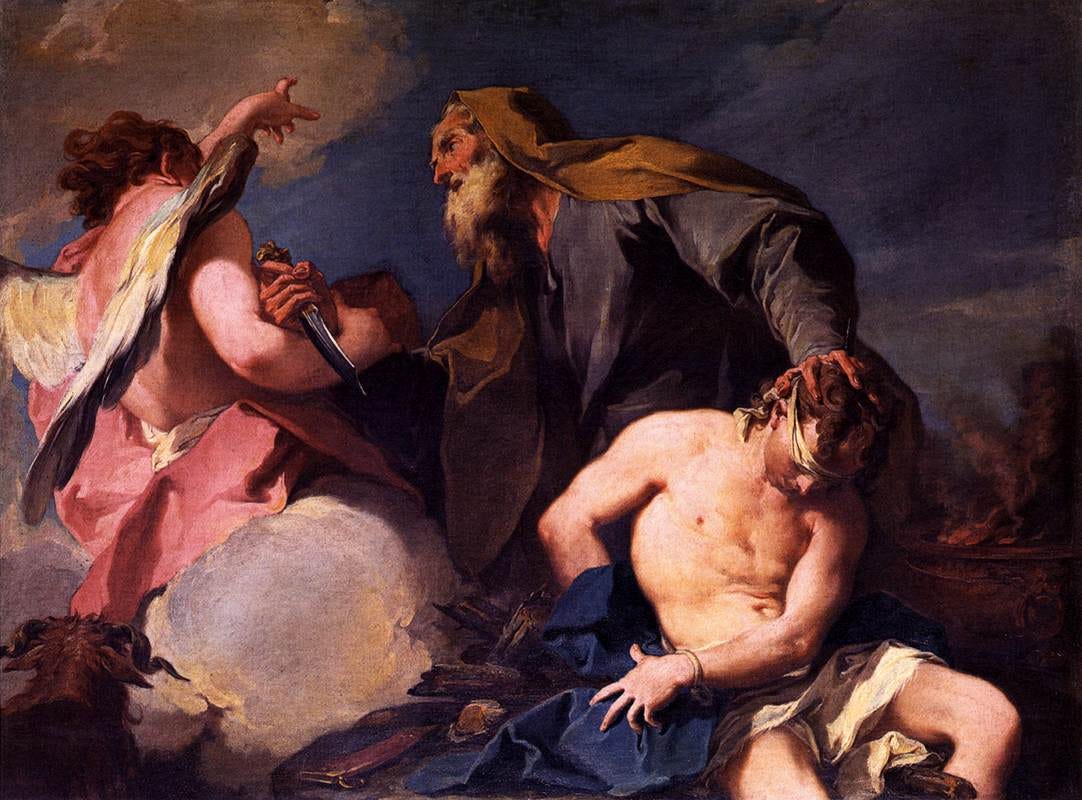
I digress but this is my chance to soapbox on the oft forgot father of much of continental philosophy. His answer to everything was faith. The Knight of Faith (as seen in Fear and Trembling) goes against both the ascetic and the moral and instead has complete trust in God (the prime example being Abraham’s faith in God’s command to sacrifice Isaac which was illogical and immoral on the surface). If you read Nietzsche, it is not an unsimilar concept to Amor Fati. He went so far as to disprove Pascal’s rationalizations of God and asserted that a true belief in God was not based off any logic, it was a complete abandonment to the absurd and trust in God’s will. Suffice to say, Kierkegaard was a man of unwavering conviction.
His type represents much of what we see in the ‘sensitive young man’ of today. Nowadays, we’d probably call him autistic with his long treatises on Bible passages and Socrates. What made him great was this same quality. Apart from using a pseudonym, he had little concern for pandering (unlike the villain Hegel who he offers the best rebuttal to of anyone). He uses the Spanish Don Juan to write of a playboy (likely with some autobiography), Anti-Climacus to represent the ascetic priest, and Johannes de Silentio to represent the enlightenment era, conflicted Christian. There are about 20 others and they sometimes remain quite mysterious. Don’t take my half-assed summary, go read his work yourself.
The Media and The Murder
Kierkegaard was famed for his walks through Copenhagen. Reminiscent of Socrates walking around Athens, many sought after him and wanted his opinions on life, God, and meaning. He carried a gloomy disposition and was viewed as the eccentric yet loveable philosopher of his city (despite only being in his early 30's).
His story bears the same themes we see of many who are slandered today. At first he was novel and a subject of fascination. His friendly but reclusive personality only made him more of an enigma to the common man. Kierkegaard even counted some journalists as friends but did always have a distrust of the media (good thesis on it here). Overall, he did not seem to be a distrusting or conniving individual.
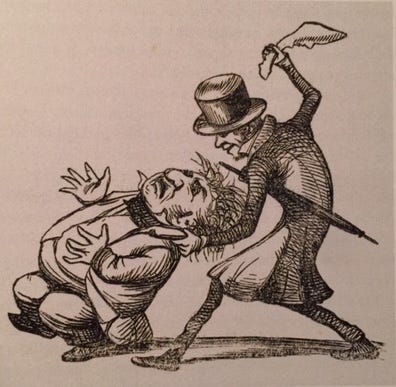
The media ‘pounced.’ The Corsaren (corsair in English) was a Danish leftist yellow paper that had found its perfect victim. Kierkegaard, the sensitive young man, was ill equipped for Machiavellian scheming and had no ambitions of fame, only of truth.
In good faith, Kierkegaard criticized the Bishop Mynster (a man of the slave morality that Nietzsche would later lament in Genealogy of Morals). First his friend P.L. Moller wrote a sensational piece attacking him. Then an opportune newspaper owner, Meïr Aron Goldschmidt, realized an opportunity to make money and went on the attack.
The journalist is an evil breed of man. He seeks out the honest men, men who will not lie to save themselves. He straps them to a pyre of lies and mistruths. And every attempt to set the record straight only binds him further. The journalist completes his work, he makes a bonfire of their soul and laughs as the flames rise.
Where Kierkegaard had previously sought to explore the truth of humanity, he was attacked. Every vulnerability was a gap to exploit. His talk of Don Juan was turned into a confession of lechery, his questioning of the church was turned to admission of atheism (ironic coming from someone who was not a Christian), and every small work was scrutinized. Worst of all, Goldschmidt had been a fan of his previously, that is how he knew of his work so intimately and was able to attack it so well. The full story is best told in two pages from the most slop book on philosophy I own (Introducing Kierkegaard: A Graphic Guide, a comic book, yes please don’t make fun of me its next to my copy of Either/Or I promise).
Soon, he would die at the young age of 42 (with his last 7 or so years being a recluse entirely). The vicious attacks robbed a genius of his vitality. The hatred and venom of this most evil profession put a great man in his grave.
TJD
So why does this story matter? Yes, I could draw a million comparisons to ‘cancel culture’ and write some slop comparison article for you but that is not the point here. The point is to show that there is no way of escaping the yellow press. ALL journalists will fuck you in the end. Kierkegaard thought he had friends, instead he had vipers waiting for a purse of gold.
There is no ‘being a good person’ out of the wrath of journalists. They will lie, they will slander, and they will write their next headline from the blood of your jugular. I will not dox myself, but I happened to be tangentially related to a very famous event of the last few years (ie going to school with someone quite famous). The media swarmed my friends and I. Journalists demanded any of us to go on the nightly news (which one of my friends did do) and when I tried to refuse, they simply said they would bend the will of my boss’ boss’ boss’ boss (clearly not caring about any consequences I would face for it). I did speak to one documentary before they sent me a contract. In it, they detailed that they withheld rights to splice, edit, and change anything I said. They were bewildered that I refused to go on further and have my face turned into a leftist soundbite (and sent me no less than 15 emails begging me to speak).
These people will never be your friends. My crusade in high school to expose my school’s fake recycling program in the school paper was childish folly, a fairy tale of what journalism is. Those who hold real levers of power will never let anything be published to expose them. And to those they want to destroy, they will unleash the cretin, dysgenic ‘intellectuals’ to ruin you (bioleninism vindicated?).
The only good journalist is a dead one. Even the ones on your ‘side’ will throw you in front of a moving trolley if it propels their byline to the front page. Never trust them, always insult them, and do not fall for its sacred place as the ‘protector of democracy.’ Journalism is a tool, and an ugly one at that. Whether in 1835 or in 2025 the journalist will feast on your corpse as he moves to his next victim, his next headline.


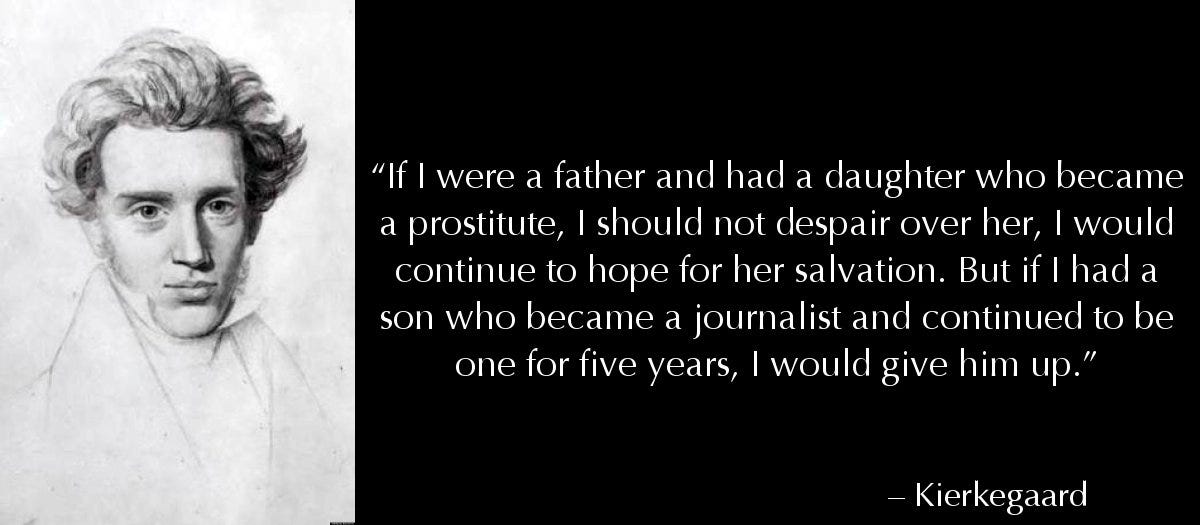

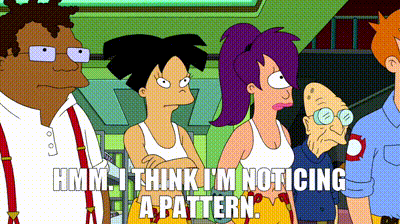
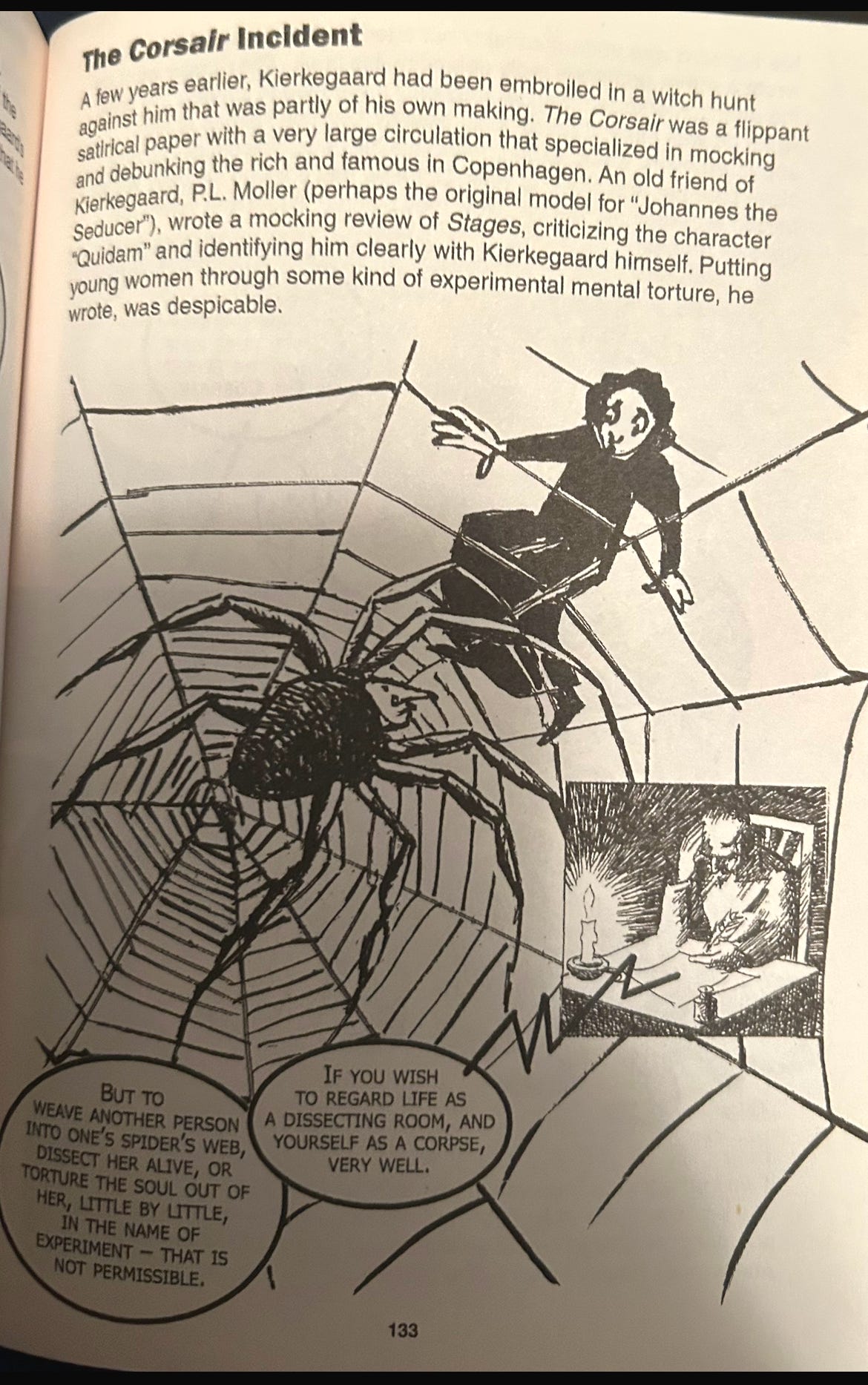
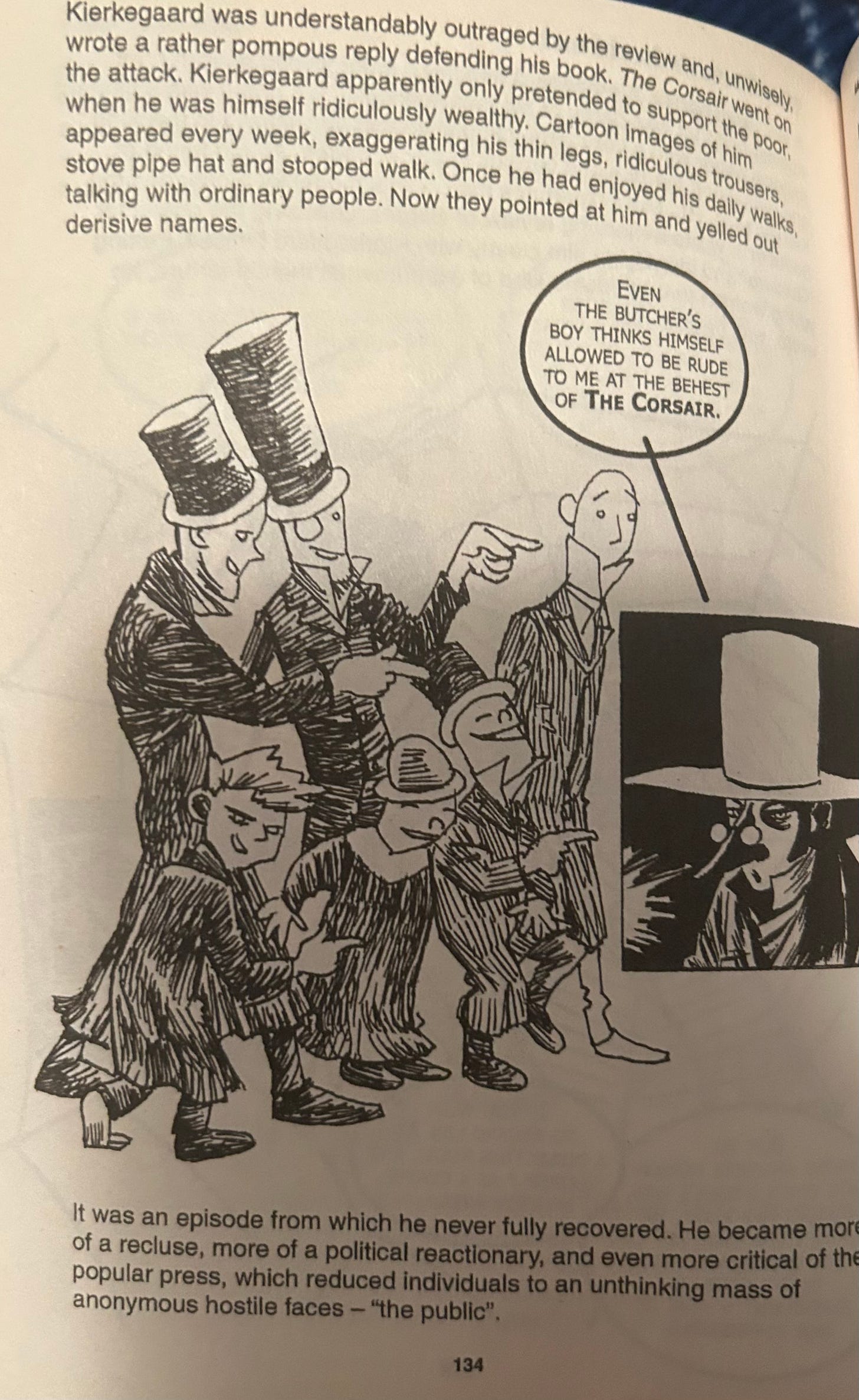
You don’t hate journalists enough. You think you do, but you don’t.
They are scum and we can’t hate them enough. Journalism and reportage are responsible for every debacle of my lifetime from Vietnam to Trump hatred.